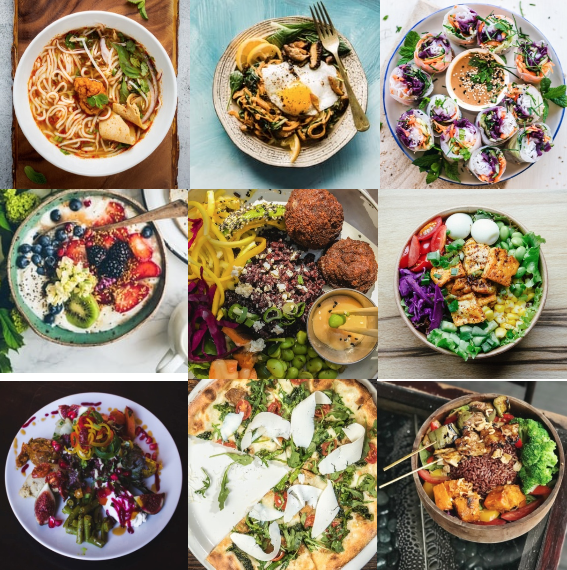
Last year, 37 leading scientists from around the world met as part of the EAT-Lancet Commission to answer one question. What kind of diet and food production will we need if we are to feed the world’s growing population now and for generations to come? Their landmark report, published in the February 2, 2019 issue of Lancet, reveals the answer. The best diet for our sustainable future is a plant-based diet, but with a twist that may surprise you.
Good for you, good for the planet
Our best chance to sustainably feed the world is to follow what is now being called a flexitarian diet. That’s the conclusion of the EAT-Lancet Commission after their full scientific review. A flexitarian diet is a vegetarian diet with a little flexibility. It’s largely plant-based, but also includes a moderate amount of fish, meat, dairy and other animal foods.
You’ll find my father’s wisdom in the flexitarian diet. After all, the foundation of Nutrilite™ supplements and philosophy has always revolved around plants. While my father was living and working in Shanghai during the 1920s, he was fascinated by how people living on rural farms with access to plenty of fresh fruits and vegetables were healthier than city dwellers. He also knew cows grazing solely on alfalfa and water had shiny coats and produced plenty of milk. He theorized, plants must contain yet-to-be-discovered compounds important for health, compounds he called “associated food factors,” known as phytonutrients today.
It’s a good bet that many of the health benefits that a flexitarian diet offers are due in large part to the wide range of phytonutrients that naturally occur in plant-based foods.
In fact, a flexitarian diet just may be the solution that you are looking for. Are you interested in weight loss? Do you need help to better manage your blood sugar or reduce high cholesterol or maybe control high blood pressure? Do you want more energy? A flexitarian diet can help. Plus, a flexitarian diet helps you keep your carbon footprint to a minimum. That’s a win-win for sure.

6 tips to eat like a flexitarian
Here are six tips you can put to use right now to move closer to enjoying a plant-based diet with flexibility:
1. Go at your own pace. Remember, making a slow change to allow your taste buds to adapt is better than no change at all. The diet is meant for a lifetime, so use its flexibility to your advantage. Some people embrace the Meatless Mondays movement. Others eat animal-based foods only at dinner. Yet others use animal foods as condiments or as a side dish to control portions.
2. Try something new. Get out of your comfort zone. The next time you are grocery shopping, bring home a few new plant-based choices. Experiment with recipes. You never know when you’ll hit on something you really like. Whenever possible, choose organic fruits and vegetables, like those we use for Nutrilite™ supplements grown using our sustainable Nutrilite farming practices. And, if you want to help make your carbon footprint even lighter, choose locally grown produce.
3. Change your focus. Rather than completely cutting animal products out of your diet, crowd them out. Meat, milk and eggs have the biggest burden on the planet, so that’s a great place to start. Replace them with vegetables, lentils, beans, whole grains and other plant foods. Plus, you’ll be eating more fiber, which helps you feel full and stay regular. You may even feel lighter on your feet and think more clearly.
4. Find a plant-based substitute. One key for this change of lifestyle is to find plant-based alternatives that you like as much or more than their animal-based counterparts. For example, if you enjoy dairy milk, try pea milk or oat milk, hemp milk, or cashew, almond or other nut milks instead. There are so many options, each a little different. In fact, this might be a great place to start your flexitarian journey.
5. Nourish your gut. Adding fermented foods like kefir, kimchi or sauerkraut to your plant-based diet is a great habit to help maintain a healthy gut microbiome. These are rich sources of probiotics that help balance the bacteria in your gut. (You’ll see the benefits of this dietary change in a matter of days.) Supplementing with a daily probiotic can help too. It helps fill the gap between the probiotics in the foods we eat and the probiotics your gut needs to thrive.
6. Fill any potential nutrient gaps. While a plant-based diet is generally nutrient rich, it may fall short in a few vitamins and minerals, especially vitamin B12. Plus, whether by choice or circumstance, you may be unable to include fruits and vegetables from all five color groups in your daily diet. If so, you could be depriving your body of key phytonutrients for optimal health (think lycopene to support heart health or lutein for your vision). This is where Nutrilite™ Daily and Double X really shine. In addition to essential vitamins and minerals, each product provides powerful plant phytonutrients from a trusted source (our very own sustainable farms). It’s a special benefit found only in our products. It’s also what makes Nutrilite™ multivitamins unique, completely different from any other on the market.
You may recognize a plant-based diet as one that people in Blue Zones eat. These areas of the world are where people age, often into their 100s, with gusto. Here, people don’t wait until disease hits. Rather, they develop healthy habits early, which they continue to follow for the rest of their lives. They stay active, have purpose, regularly de-stress, and engage in other healthy habits, including eating a plant-based diet.
Embracing a plant-based diet with a little flexibility may be just what you need to add life to your years (and it’s good for the planet, too).
Here’s to being more flexible in the New Year!
Cheers,

P.S. Don’t forget to subscribe to our RSS feed and have blog posts delivered right to your inbox.
